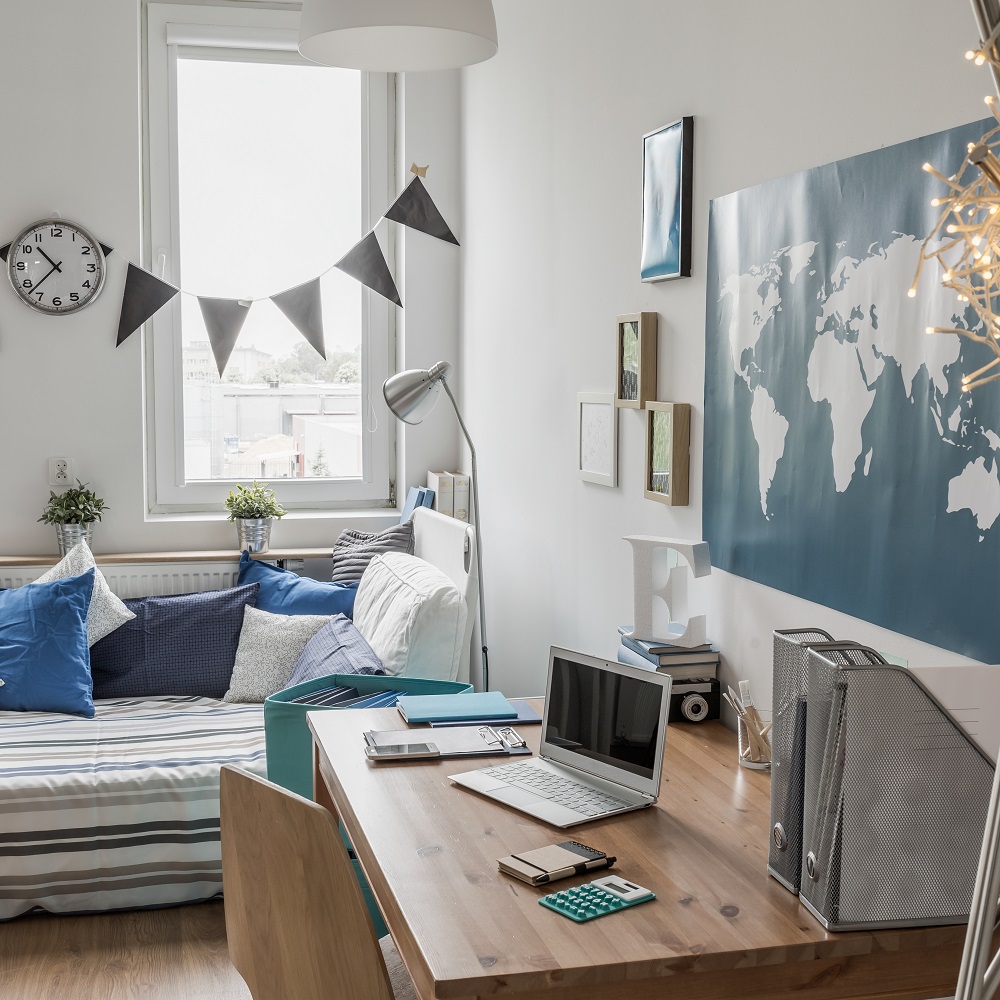Finding a place to live while studying abroad
During your time abroad, you will, of course, have your own choice of where to live. Basically, there are many different accommodation options. We’ll show you here what the options are, what you should consider in each case, and how best to go about finding the perfect accommodation. As you can see below, you have a wide range of options, which differ mainly in the factors of flexibility, cost and type of cohabitation.
Student dormitories on campus
Most international universities have their own dormitories, in which only the students at the respective university live. Here, a distinction is usually made between single and shared rooms, where the number of roommates can vary. With this option, you benefit from the direct proximity to the campus and the strong contact to other students. You also don’t have to worry about getting furniture – the dormitories are already equipped, so you only have to take care of small things like your bed linen or towels.
If you decide to live in a student dormitory, you usually pay regular rent like in a “normal” apartment. Comparatively, the rent in a student dormitory is often a bit higher, but electricity and rent as well as (often) several meals in the canteen are included. We advise you to apply as soon as possible after you have been accepted by your foreign university. The places are limited and mostly in great demand!
Private apartments
Of course, you also have the possibility to rent a private apartment the “conventional” way. Here you are completely flexible, can furnish yourself if desired and decide with whom you want to live. This option gives you the opportunity to make many decisions independently and is often cheaper than living in student residences.
Unlike the other options, which require you to apply as soon as possible, renting a private apartment is relatively short-term and straightforward. Therefore, we strongly recommend that you do not sign a contract for an apartment until you have been able to visit it and see it for yourself. For the transition period, it is a good idea to rent a room in a hotel or Airbnb. However, experience shows that this transition does not take too long, so that most students can move into the actual apartments after a few weeks at the latest.
Host family
You can also live with a host family. Here you are an integral part of the family and get to know the culture and traditions of your host country in no time. This can make your start in the new country much easier. The daily routine in a host family includes everything that makes up the typical everyday life of the host family. You will eat meals together, share household chores or go on excursions together. Living with a host family allows you to gain deep insights into your host country that are otherwise difficult to obtain. However, you should keep in mind that as a family member you have certain responsibilities and different rules may apply within the family.
Off-campus student housing
In some cases, there are private providers that offer apartments for rent around the universities. Again, there are the traditional options such as single or shared rooms. Often there is close cooperation with the university and the apartments are also equipped with basic amenities. Electricity and internet are also often included in the rent.
However, you should keep in mind that similar to the dormitories on campus, there is a high demand here as well, so you should apply as early as possible.
For a good overview of different dormitories, we recommend the website www.student.com, which shows you offers in more than 400 cities. Here you can easily search for your university or your city abroad and explore all available options. You will also get a detailed overview of what is included in the price and how the apartment or room is equipped. In addition, a free 24-hour service is offered, should you need help with your search or even booking.


